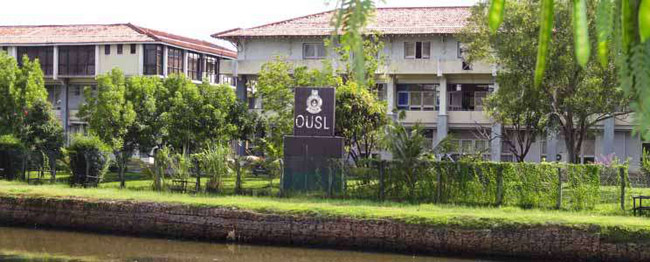The Sri Lanka Institute of Advanced Technological Education (SLIATE) is one of the country’s foremost institutions dedicated to providing advanced technological education. Its mission is to equip students with both the theoretical knowledge and practical skills needed to excel in sectors such as engineering, information technology, business, and hospitality. SLIATE’s commitment to producing competent professionals is integral to Sri Lanka’s development, ensuring a steady supply of qualified personnel to meet the needs of a rapidly growing economy.
1. The Genesis of SLIATE
SLIATE was established as part of a national strategy to expand access to technical and vocational education in Sri Lanka. The institution was created to fill a gap in the higher education system, specifically catering to the demand for hands-on, career-focused training in technology and business. By offering Higher National Diplomas (HNDs), SLIATE gives students an opportunity to pursue a technical education that is aligned with the needs of the job market.
From its humble beginnings, SLIATE has expanded its reach across the island, now operating 19 Advanced Technological Institutes (ATIs), providing higher education to students from both urban and rural areas.
2. SLIATE’s Educational Philosophy
At the heart of SLIATE’s approach is the philosophy of blending academic knowledge with practical application. The institution strives to prepare students not only for jobs but also for the challenges of a constantly evolving technological landscape. This focus on career-readiness ensures that graduates are equipped to enter the workforce with confidence, possessing both the technical know-how and soft skills needed to succeed.
SLIATE fosters a learning environment where students are encouraged to develop:
- Technical expertise in their chosen fields.
- Problem-solving skills to tackle industry-specific challenges.
- Leadership and communication skills essential for career advancement.
3. Comprehensive Range of Study Programs
SLIATE offers a diverse range of diploma programs, all designed to provide industry-relevant education that can be applied immediately upon graduation. The curricula are constantly updated to stay in line with technological advancements and industry trends, ensuring that students graduate with the most up-to-date skills.
Some of the Key Programs Include:
- Engineering Diplomas: Specializations in Civil, Mechanical, Electrical, and Quantity Surveying offer students the technical proficiency required to work in Sri Lanka’s fast-growing infrastructure and construction industries.
- Information Technology (IT): IT programs prepare students for careers in software development, networking, database management, and cybersecurity, meeting the global demand for tech-savvy professionals.
- Business Management: SLIATE’s business courses cover key areas such as accountancy, human resources, marketing, and entrepreneurship, equipping students to lead in the corporate world.
- Tourism and Hospitality: Sri Lanka’s booming tourism industry offers significant opportunities, and SLIATE’s programs in hospitality management ensure students are prepared to work in hotels, resorts, travel agencies, and related businesses.
4. Accessible Education Across Sri Lanka
One of SLIATE’s core strengths is its extensive network of Advanced Technological Institutes (ATIs) spread across Sri Lanka. This allows the institution to serve a diverse student population, offering higher education to those in rural and urban areas alike. With campuses located across 19 districts, students have access to quality education without the need to move far from their homes.
Each ATI is equipped with modern classrooms, laboratories, and facilities that enable students to get the most out of their learning experience. By offering cutting-edge tools and technology, SLIATE ensures that students are well-prepared for the technical demands of the industries they will enter.
5. Hands-On Learning and Practical Experience
SLIATE places a strong emphasis on practical learning to complement theoretical education. Most programs include industry internships, on-the-job training, and laboratory work, giving students the chance to apply what they’ve learned in real-world settings. This hands-on experience is invaluable, as it helps students gain insight into industry practices and allows them to develop the skills that are most valued by employers.
The practical approach extends to partnerships with various industries, which help SLIATE tailor its programs to meet the needs of the job market. Employers often seek out SLIATE graduates for their practical expertise and readiness to contribute to the workforce from day one.
6. Strong Employability and Career Outcomes
Graduates from SLIATE are known for their high employability due to the institution’s focus on preparing students for the demands of the job market. Many students secure jobs shortly after graduating, with SLIATE graduates being in demand across multiple sectors, including engineering, IT, construction, manufacturing, and hospitality.
The strong employability of SLIATE graduates is further boosted by the institution’s strong industry connections, ensuring that students are exposed to relevant job opportunities. Additionally, SLIATE qualifications are recognized by both local and international universities, allowing students to pursue further education if they choose.
7. Student Support and Extracurricular Development
SLIATE recognizes the importance of student support in ensuring academic success. The institution offers a range of services, including career counseling, mentorship programs, and placement services, to help students navigate their academic journeys and transition into professional life.
Beyond academics, SLIATE encourages students to participate in extracurricular activities that foster personal development. Through sports, cultural events, and student clubs, students can develop soft skills like teamwork, leadership, and communication, which are essential for success in any career.
8. Impact on Sri Lanka’s National Development
SLIATE plays a pivotal role in shaping the future workforce of Sri Lanka. By producing skilled professionals in high-demand fields such as engineering, IT, business, and hospitality, SLIATE contributes directly to the country’s economic growth and competitiveness. The institution’s focus on technological education ensures that Sri Lanka remains competitive in the global market, with a workforce that can keep pace with technological advancements.
Additionally, SLIATE supports the government’s vision of transforming Sri Lanka into a knowledge-based economy by fostering innovation, critical thinking, and entrepreneurship among its students.
9. Challenges and Future Directions
As with any growing institution, SLIATE faces challenges, including the need to modernize infrastructure and ensure that its programs keep pace with the latest technological trends. However, the institution is committed to overcoming these challenges by expanding its collaborations with industries, introducing new technology-driven programs, and upgrading its campuses to better serve its students.
In the future, SLIATE aims to introduce more courses in emerging technologies such as artificial intelligence, renewable energy, and robotics, ensuring that its graduates remain at the forefront of technological innovation.
Conclusion
The Sri Lanka Institute of Advanced Technological Education (SLIATE) continues to be a driving force in the country’s technical and vocational education system. By offering a wide range of programs that focus on practical skills, career readiness, and industry relevance, SLIATE ensures that its graduates are well-prepared to meet the demands of the modern workforce. As it continues to expand and innovate, SLIATE will remain a key player in shaping Sri Lanka’s technological future and fostering economic growth.
visit teachmorepro.lk for more details


